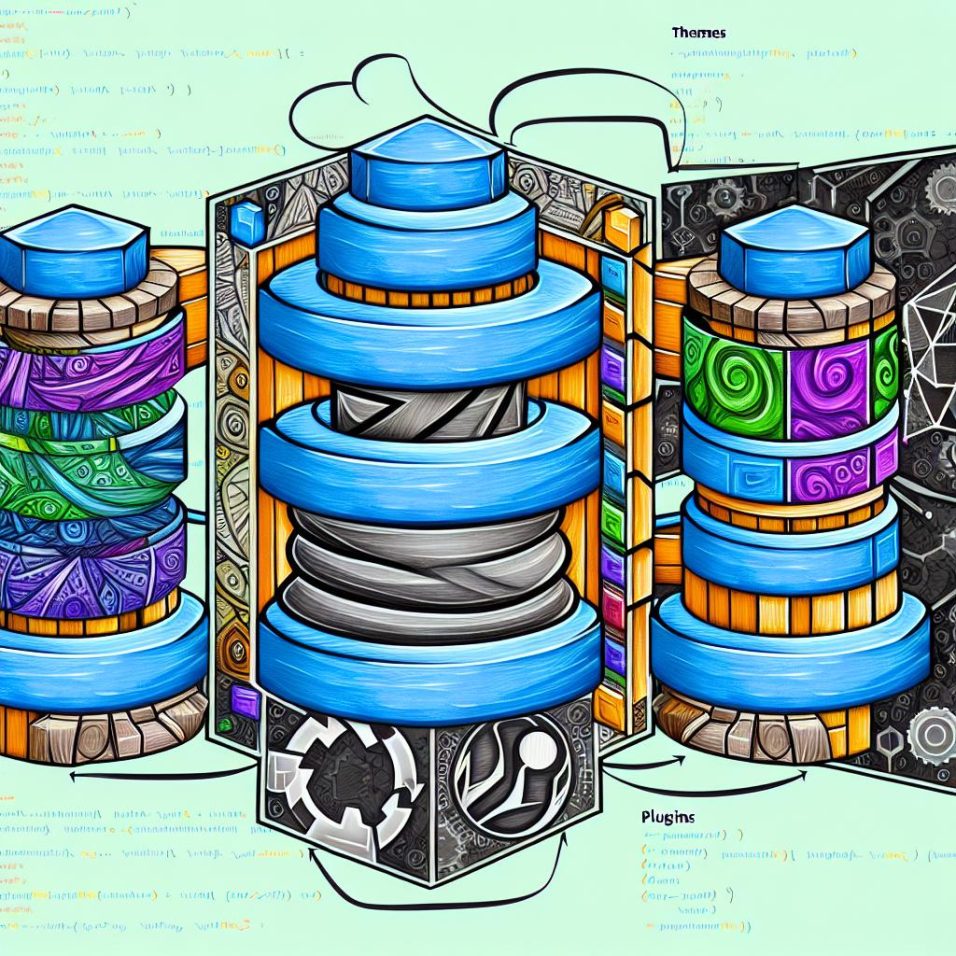The Genesis of WordPress Core
The development of the WordPress Core dates back to its inception in 2003, offering a revolutionary approach to web publishing. Initially designed as a simple blogging tool, WordPress quickly evolved into a versatile platform through the expansion of its core capabilities. These advancements empowered users with the flexibility to create not only blogs but also complex websites, e-commerce portals, and expansive online communities.
The core’s architecture is predominantly a blend of PHP, HTML, and CSS frameworks, ensuring interoperability and extensibility. Its modular nature allows for extensive customization via hooks and filters, fostering a robust ecosystem for developers and users alike. Keeping abreast with WordPress Codex can provide deeper insights into this dynamic structure.
The Significance of Themes
WordPress themes contribute significantly to branding and user experience. By dictating the aesthetic and interface of a site, themes serve as the linchpin in aligning the website’s visuals with the business ethos and target audience. Whether minimalist, flamboyant, or professional, the theme sets the first impression and navigational ease.
Theme Frameworks and Page Builders
Advanced users might opt for theme frameworks like Genesis or Divi, offering a starting point with layered features for rapid, yet sophisticated, site design. Furthermore, page builders such as Elementor and Beaver Builder augment themes by allowing drag-and-drop flexibility for a truly bespoke design experience.
Exploring the Ecosystem of Plugins
The expansiveness of WordPress is largely attributed to its plugins. From boosting site analytics to fortifying web security, plugins are integral in transforming a basic site into a versatile powerhouse. The ease of activation and deactivation in the Plugins section of the admin area makes it seamless to switch functionalities as per evolving business needs.
Optimized Plugin Utilization
Customization through plugins should strike a balance between functionality and performance. Lightweight, well-coded plugins are preferable, minimizing potential impacts on site speed and user experience. Engaging with community forums and reviews can offer insights into the plugin’s stability and developer commitment to updates.
Community Contributions and Plugin Development
The WordPress community actively contributes to the development and refinement of plugins. Interested developers can peruse resources like Creating Plugins to craft or improve functionalities, promoting a cycle of continuous improvement and innovation.
Acquiring in-depth knowledge and mindfulness towards appropriate usage of the core, themes, and plugins fosters an enriching WordPress website experience, making it resilient, attractive, and functional, ultimately ensuring user satisfaction and achieving objectives effectively.

